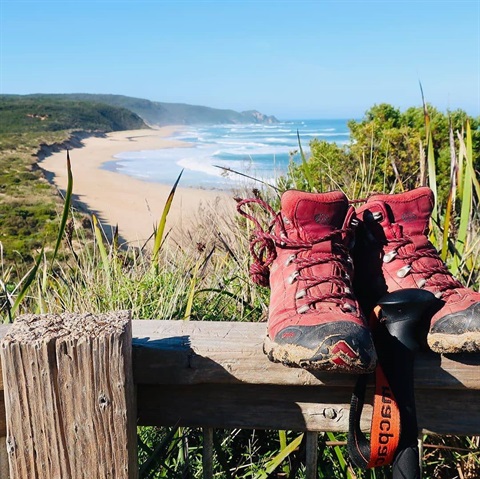ECO Destination Certification

Surf Coast Shire Council is on an exciting journey to become a certified ECO Destination through Ecotourism Australia.
We love to welcome visitors to the Surf Coast and share the unique environment we all care so deeply about.
Becoming an Eco Destination supports our community vision to leave the Surf Coast better than we found it.
What is Eco Destination Certification?
An Eco Destination Certifications recognises destinations that have outstanding natural environments and best-practice management.
This globally-recognised certification is a natural extension of the work we are already doing in our community to protect and conserve our environment. It assures travellers that the Surf Coast region is backed by a strong, well-managed commitment to ongoing improvement of sustainable practices and provide high-quality nature-based tourism experiences.
Our goal is to achieve certification by the end of 2025.
Find out more about Ecotourism and the benefits of certification
How do we achieve Eco Tourism Accreditation?
The certification process is broken down into seven sections:
1. Destination Management
Our focus will include addressing criteria on:
- visitation to sensitive sites and assets monitoring its impact
- reporting on sustainability and things being put in place to address challenges
- ensuring tourism in the destination is carefully planned.
2. Nature and Scenery
The emphasis here for Surf Coast will be on nature conservation and wildlife protection and what stakeholders are doing locally to avoid the local extinction of wild flora and fauna.
The protection of habitats in The Eagle Rock Marine Sanctuary is a wonderful local story of nature conservation and protection. How can we learn from and build on this success and are there other areas we can extend protection to and support biodiversity?
The completion of our Biodiversity Conservation Plan will be a key milestone in achieving accreditation in 2025.
3. Environment and Climate
Our local Tourism Industry is already being affected by climate change, especially by the increased frequency of extreme weather and bushfires. The frequency of heat waves, unseasonable cold, droughts, storms and heavy rains not only affects visitor comfort, safety and satisfaction, but also the assets and products attracting our visitors.
Following two community petitions, Surf Coast Shire Council declared a climate emergency in 2019. This declaration acknowledged the need for more urgent and extensive action to reduce emissions and build resilience to local climate change impacts.
Ecotourism Australia, through the accreditation process encourages us to identify risks and opportunities that climate variability may bring, as well as to take action to improve our resilience.
4. Culture and Tradition
Caring for the natural environment protects cultural heritage, enhances our understanding of culture and enriches lives. Cultural heritage is a non-renewable resource.
While vandalism and destruction are common challenges presented in protecting cultural artefacts, often the innocent collecting or acquiring of souvenirs by tourists (including the singular collecting of stones or shells) can also result in dramatic consequences when done by large numbers of people.
This is why it is important for us to have in place measures that can help protect our cultural artefacts significant sites.
Our strong relationship with our Traditional Owners has seen concerted efforts to protect ancient midden sites at Bells Beach.
What more can we do in this space to protect cultural heritage across the region?
5. Business and Communication
This is a team effort. A collaborative multi-stakeholder approach is ideal when communicating about environmental issues.
We can as a Council improve on how we engage and communicate with tourism-related enterprises. We will as a Council do better with the encouragement and support we provide tourism related enterprises to make their operations more sustainable.
The eco accreditation process will be the catalyst to bring together our incredible local business community to establish common goals and create a framework for joint action.
6. Social Wellbeing
While tourism brings economic benefits, it is important for Council to understand the social impact of visitors to the local community.
The Aireys Inlet Affordable Housing Project highlights our commitment to play our role in the affordable accommodation challenges coastal towns are facing at present.
The eco accreditation process will challenge us to do more in this area and provide targeted response and support where it is most needed.
7. Ecotourism
This involves incentives and rewards for sustainable businesses, engagement with protected area managers and Traditional Owners in tourism decision making.
How Can You Be Involved?
We want to work together with the entire community to make the Surf Coast an ECO Destination. Check out the EcoTourism website to see how you can join these local tourism businesses who have already completed certification programs:
Desa Retreat (since 2023)
Lorne Bush House Cottages (since 2010)
Southern Exposure Eco-Adventure Sports (since 2012)
Torquay Surfing Academy (since 2013)
Read about other like- minded destinations in Australia where environmentally sustainable and culturally responsible tourism is the focus Good travel guide